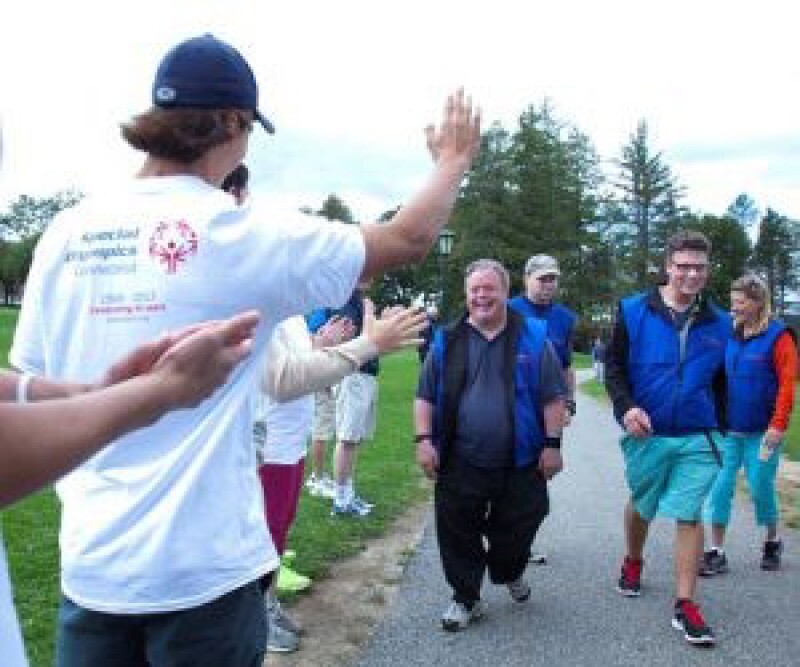It is well documented that people with intellectual disabilities are less active than the general population. This is not due to their disability, but the lack of access to fitness education and opportunities that fit their needs. At Special Olympics, our mission is to provide sports opportunities for people with intellectual disabilities. In order for our athletes to truly perform at their best, they must be fit and healthy. The reality is that many of our athletes only practice their sport once a week, and competition seasons are only about three months long. This leaves a large gap throughout the year where athletes live sedentary lifestyles, putting them at risk for obesity, osteoporosis, high blood pressure, and diabetes. Special Olympics is filling that gap with three models of programs that encourage year-round fitness.
Special Olympics Fitness Programs
Fit Families, SOfit, and Unified Fitness Clubs are spreading worldwide throughout Special Olympics Programs. Each model works in a slightly different fashion to motivate, educate, and inspire fitness through physical activity, healthy eating, and proper hydration. So far, the programs have shown to be effective ways to encourage lifestyle change.
- 9% of all athletes increased their physical activity levels by at least 30 minutes each week.
- 44% of hypertensive athletes improved to normative levels within 10 weeks.
- Similar improvements were shown in participants with and without intellectual disabilities.

Fit Families
Fit Families, designed by Special Olympics Arkansas, is a six-week fitness challenge designed to encourage SO athletes and their supporters to focus on a healthier lifestyle. Families track physical activity minutes and progress towards a nutrition goal, and are then rewarded with incentives for completing the challenge. Around the world, 15 Special Olympics Programs have replicated this challenge. “A group of athletes lost eighty-five pounds collectively because they all worked together to support each other through this challenge,” explained Camie Powell, Special Olympics Arkansas Director of Marketing and Corporate Relations.

SOfit
Designed by Special Olympics Minnesota and currently implemented in 21 Special Olympics Programs, SOfit is an eight-week wellness class in which unified pairs (one person with and one person without intellectual disability) learn to live a healthy lifestyle through educational topics and fitness activities. Teams learn about all aspects of wellness including topics like healthy cooking and grocery shopping, the importance of varying workouts, how to make healthy beverage choices, meditation for stress relief and even how to cope with bullying. “One of the key aspects of SOfit is its flexibility. It was designed so that with some basic guidelines and instruction, it can be run by anyone, anytime, anywhere,” explained Hillary Tyler, Health Programs Manger and SOfit Co-Creator.

Unified Sports Fitness Club, created by Special Olympics Connecticut, has gained traction in 22 Special Olympics Programs worldwide. Unified Sports Fitness Clubs meet at least once a week for year-round fitness and to inspire friendships among participants. Each participant receives a fitness tracking device to count steps and miles and is rewarded for achieving milestones. Participants are encouraged to stay active outside of weekly meetings to further enhance their health and fitness, which can also result in earning incentives faster.







